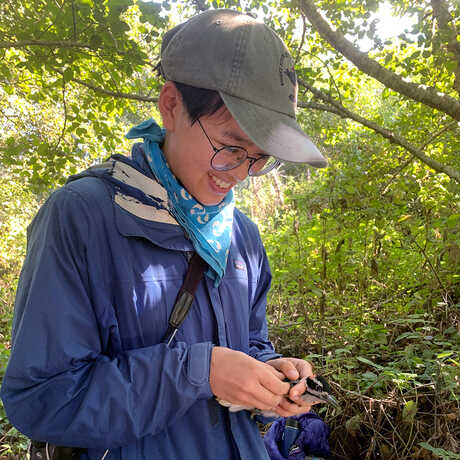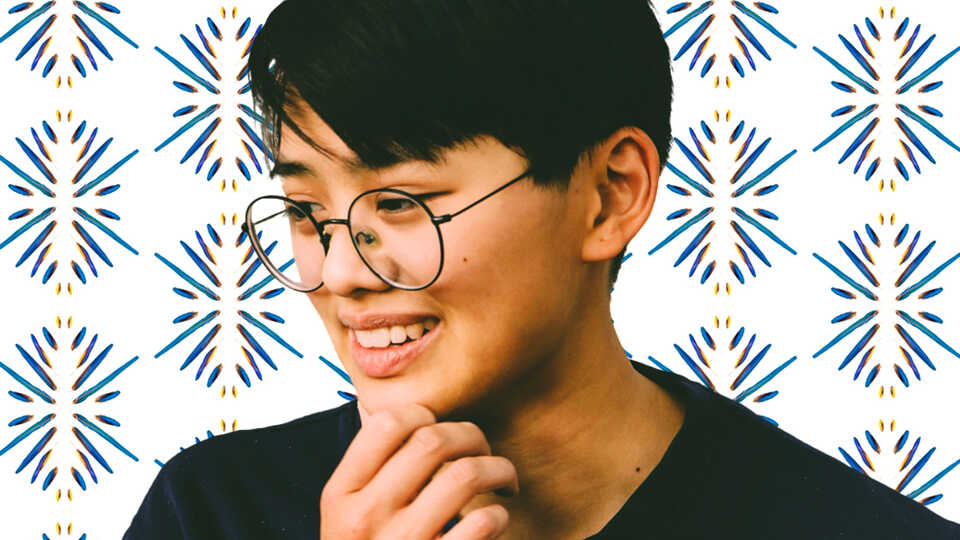Oliver's Story (they/them)
In Vietnamese-American families, the term “conservation,” or Bảo tồn thiên nhiên, is a luxurious word, heavily laden with implications of something frivolous, only meant for Caucasian men with financial means to pursue. My curiosity about conservation and intricate ecological systems did not develop from growing up with my family’s penchant for nature—rather, it was stunted in its growth, and struggled against their constant pleas to choose a financially stable career, preferably a doctor or lawyer. Given that I came from a low-income household in an urban neighborhood, my decision to go into conservation was certainly an anomaly.
My first introduction to the concepts of environmental justice and biology came from my time working at the local community farm. I kept this job a secret from my parents, making sure to scrub my nails clean every time I came home. Another important piece of Bảo tồn thiên nhiên was that it belonged to the world of men. My former self, known as “Annie,” was someone my parents had expected to be a graceful Vietnamese woman with long, black hair. Instead, I dug my hands in the earth, I wore men’s work clothes, and I wistfully dreamt of exploration through tropical jungles and uncovering new species.

This curiosity for the natural world pushed me to end up working with many different animals and environments during my academic and professional career—from running at full speeds to capture and mark checkerspot butterflies with gel pens, to wading through thick reeds in swamps under the flickering lights of a thousand fireflies, to stalking some of the most charming (and frustrating) wrentits to find their little homes in a sea of poison oak. I found myself returning to my roots as an urban denizen and became fascinated with wildlife that managed to find a home in cities and thrive in the most unlikely places. Much like the kestrels that nest in a church building or fireflies that mate in the smallest of green pockets in the city, I too am working to find my place in an unlikely field—and meeting so many other diverse birders, conservationists, and scientists has made me realize that the faces of conservation don't need to be dominated by white, cis men.
To me, being queer in STEMM means a lot of things. It means having to face a lot of microaggressions—sometimes just plain aggression—and having to tell yourself that you do belong, that you do deserve to be here. It means having to figure out who’s safe and who’s not, whether to use your deadname or your real name, how to finish your dissertation while also working to improve diversity and inclusion in your department. But it can also mean finding a close community with the coolest people—people who are both changing the world through research, and changing the field of science through being their brilliant, queer selves.
Explore New Science anywhere through our virtual Google Arts & Culture exhibit, or see our new, in-person exhibit on your next Academy visit.
To learn more about the partners that helped make New Science possible, visit:



